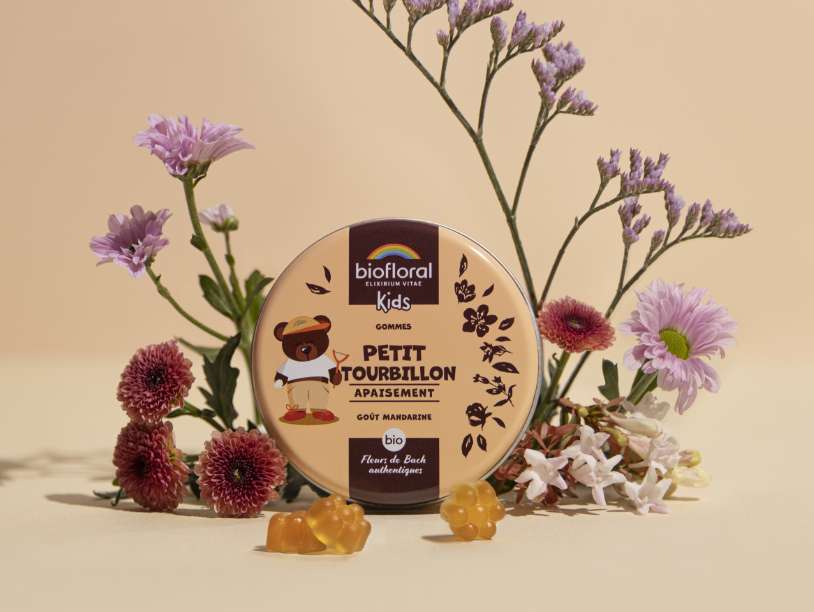The term hypersensitive is used to describe a person who has greater than average sensitivity. This can be recognized, for example, by more intense reactions to sensory stimuli (e.g. music, light, etc.). So-called “hypersensitive” people are also endowed with great empathy and sometimes have more difficulty experiencing the emotions that overwhelm them. Faced with this hypersensitivity, Bach Flowers can be of great help. Find out more in our article.
What is hypersensitivity?
By definition, hypersensitivity is exaggerated or extreme sensitivity. It is a state the body enters when it overreacts to the introduction of an antigen (substance causing the formation of an antibody). Allergy is a form of hypersensitivity. In the world of flora, it is a defense reaction that certain plants have against a parasite. This defense is characterized by necrosis of the attacked cells and protection of neighboring tissues.
More simply, hypersensitivity is a feeling of “too much”: too many emotions, too many thoughts, too many sensations, too much empathy, too much intensity. This feeling of “too much” leads hypersensitive people to be much more impacted by what surrounds them. They will be more sensitive to external stimuli than others.
It is important to know that each hypersensitive person will react differently to stimuli. All cases of hypersensitivity are unique.
There are several types of hypersensitivities:
- Emotional: the person reacts strongly to emotional stimuli. The and the perceptions are much more present.
- Sensory to touch: the simple fact of being in contact with this person will bother them.
- Auditory sensory: the person is very sensitive to noises and sounds around them.
- Olfactory sensorial: the person is very sensitive to the smells around him.
- Immediate or delayed: if it is immediate, the person reacts directly. Conversely, if it is delayed, the person takes longer to react.
Where does hypersensitivity come from?
Hypersensitivity can come from several factors: family context, education, genealogy, society, a person's entire environment. This trait can even develop from the intrauterine period, a period during which the mother's emotions can impact the fetus. Hypersensitivity therefore has nothing to do with an anomaly, a pathology or the genetics of the human body.
There are different signals: great emotional reactivity, strong sensitivity to noises, stress and the emotions of others.
How to cope better with your hypersensitivity?
There are several solutions to allow hypersensitive people to relax and better cope with their hypersensitivity. When they are children, parents are advised to warn those around them and the school. This allows you to prepare suitable places so that they can be alone if necessary. Some specialists also recommend that hypersensitive people do activities, such as meditation, yoga and sport, to help them better manage their emotions and relieve stress. The presence and behavior of loved ones are also very important. This allows hypersensitive people not to feel alone or abandoned. They can thus communicate better if they feel the need.
But this hypersensitivity is also a strength. Being hypersensitive allows you to be more focused on emotions and feelings. It is an asset for developing creativity and artistic activities. Recognizing that you are a highly sensitive person can sometimes generate empathy in others. They can subsequently help us anticipate or accept certain situations.
Some exercises that can help hypersensitive people:
- Identifying and making a list of things that are unbearable for you is a good way to avoid them later.
- Answer the following questions to identify yourself:
- Are you easily hurt by criticism, reproaches, conflicts and, therefore, do you try to avoid them?
- Are you affected by the emotional state of your loved ones, your colleagues, to the point of feeling like a sponge, or of living without a “filter”?
- Are there smells, lights, sounds, sensations that particularly bother you even though objectively they are not disturbing - and do not bother others?
- Do you put your heart into most of the tasks you do?
- Do you sometimes feel your mind going in all directions, ideas, thoughts rushing through you, to the point of exhausting you?
Balancing your emotions with Bach Flowers
Several natural solutions exist to better cope with hypersensitivity, including Bach Flowers. Discovered in the 1930s by an English homeopath, Doctor Bach, these flowers have a higher vibrational state than other plants to respond favorably to difficult emotions.
Bach Flower No. 33 - Walnut
Bach Flower Walnut helps in cases of hypersensitivity and protects against disturbing situations and difficulty adapting to changes and renewal. Walnut allows you to overcome states of doubt and hesitation, it arms you to face changes and to move forward. It will therefore help people who have difficulty adapting to changes and especially who are easily influenced by others.
This flower is said to provide adaptability and protection against external influences. We may therefore need this flower in the following situations: moving, change of job, back to school, birth...
Sources:
- “Am I hypersensitive? Investigation into a little-known power” by Fabrice MIDAL, Flammarion edition - Versilio
- https://sante.journaldesfemmes.fr/fiches-sante-du-quotidien/2593286-hypersensibilite-definition-caracteristiques-symptomes-test-traitement/
- https://www.btlv.fr/lhypersensibilite-dou-ca-vient-galere-ou-atout
- https://www.larousse.fr/dictionnaires/francais/hypersensibilite
- https://www.rtbf.be/article/lhypersensibilite-les-7-signes-revelateurs-10952561









Leave a comment